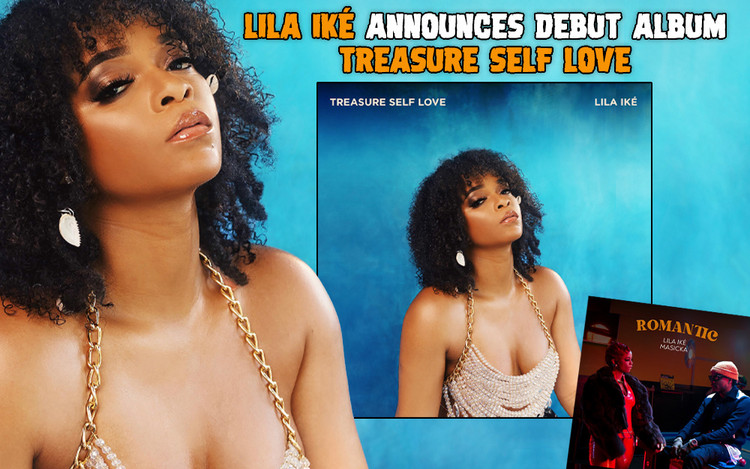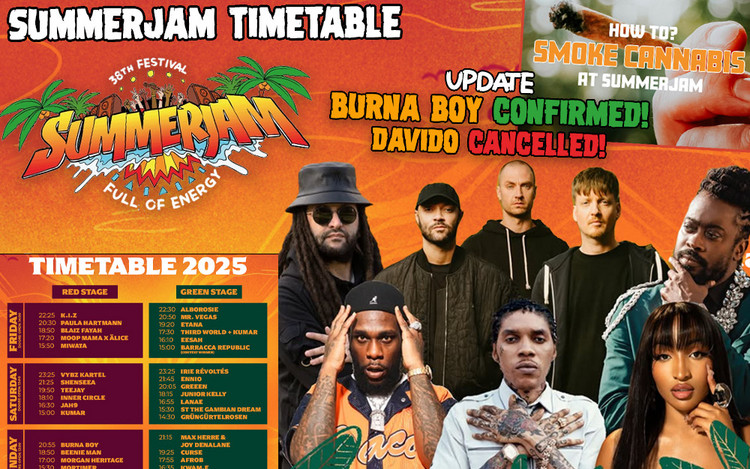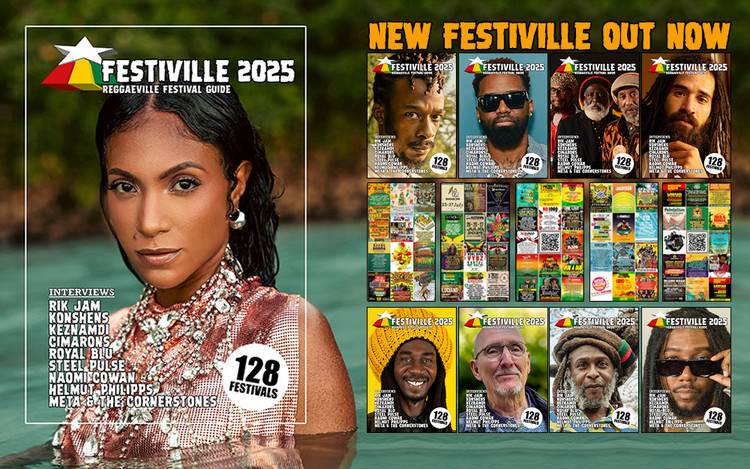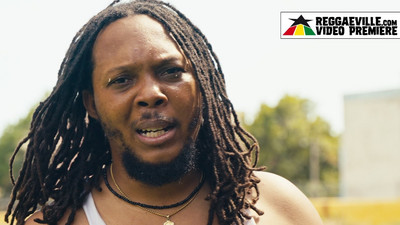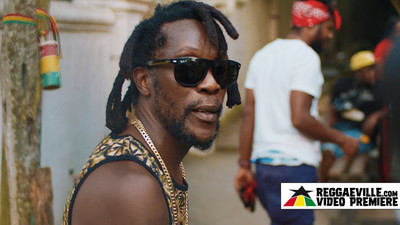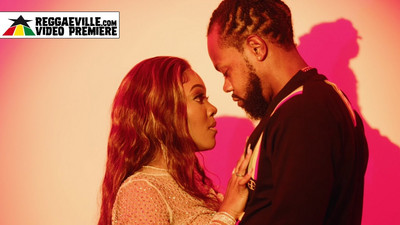Sizzla ADD
Interview with Sizzla - Singing For The World
08/10/2021 by Steve Topple
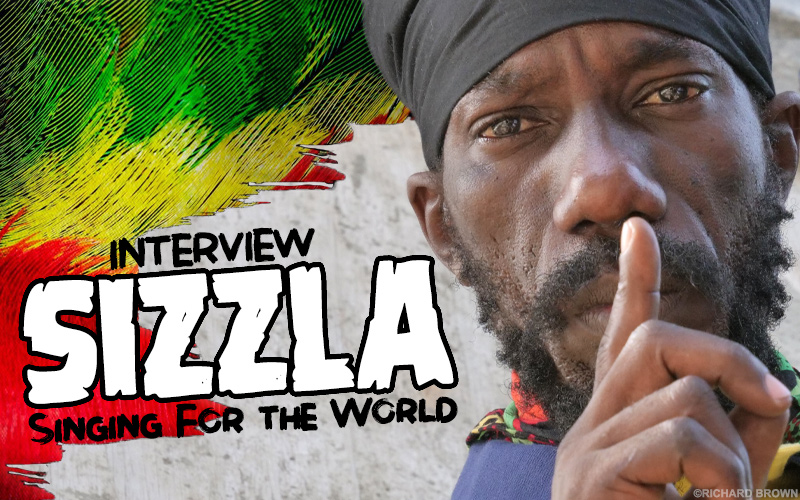
Sizzla is back with his third album in as many years; following on from 2019’s Victory and 2020’s Million Times. On A High sees him deliver a musically sweeping, lyrically potent project that does not disappoint - and may well be his strongest work for a good while. Sizzla delves into multiple genres with narratives about love, faith, spirituality, Babylon, humble self-confidence and more. But why did On A High end up so diverse? How does Sizzla feel about the world? And is he really building a museum in his home town? Reggaeville caught up with the legendary artist to discuss all this and more.
Your new album On A High is a really expansive project. How long did it take to construct?
Well, I like doing freestyles. If I hear just about any riddim, I start mumbling, I start doing something. Because I learned to practice the guitar, the bass, the drums and all those things. I like music. It’s my passion. So, even when I’m not with any riddim for my company, I’m still recording. This is in my blood. And if it wasn’t there from the start, it’s now there. Because there are so many producers coming to me every day to record. So, I’m in the whole habit of recording day and night, day in, day out. I took that formula to do this project with ONErpm. I’m going to take all the formulas that I used to record songs all over the world and get this album out. It’s a three-album deal, three years. But I said to myself, I need to produce for myself. I lost Philip Burrell, I lost Bobby Dixon, I need to get my eggs in one basket.
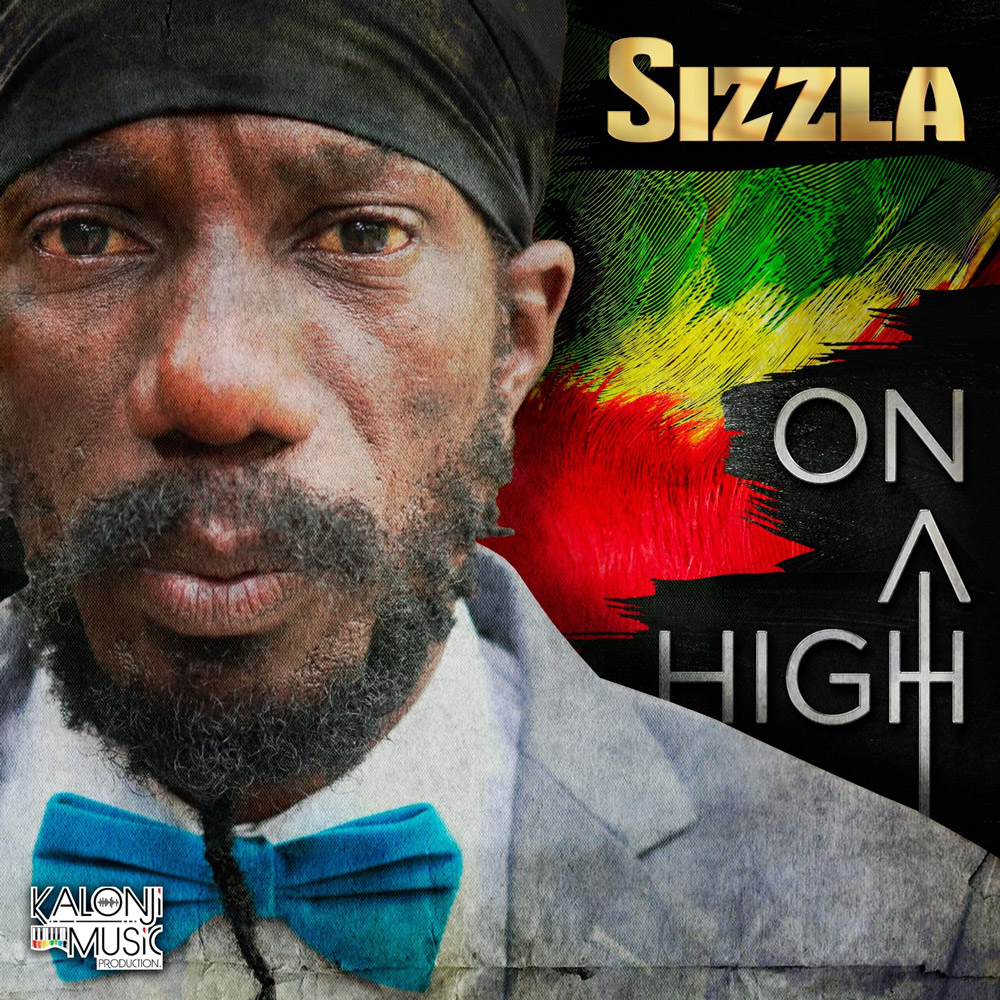
I started recording and it took me about two days to record the Million Times album. Because the riddims were so lovely, harmonic, the beats – I started whopping one song, two songs, three songs – I would do it, do it, do it until it’s done. And the guys were like ‘but you’re at 17-18 songs!’ So, we needed 12 songs for the album. We sat down in the studio and began choosing songs, that’s another part of the album; ones that are appealing and will be loved by the world. And travelling the world, I think I know what the world needs when it comes to Sizzla and songs. They’re always saying ‘where are the old skool songs?’ The girls are saying ‘where are the love songs?’ [laughs]. Another part that goes into the album is working stage shows. In Jamaica you’ve got all sorts of shows and music. It’s a party country, a music country. It’s embedded in the country, the people – y’know?
But I’m also going to give an album to the world – and I want to give you a variety. So, I started recording a lot of songs. Because if I’m going on a stage show and it’s a Raggamuffin show with a lot of gangsters, I can’t flop! I gotta make sure I’m out in all the magazines. Then, if I’m on the beach with the girls I’ve gotta sing a lot of beautiful songs: [sings] “Where do you go, don’t you need my love? Give me chance!” If you’re on the stage with Rastaman: [sings] “(Boom, boom) Praises Jah!”.
So, I took all those formulas and put it into making this album. I’m not always with good riddim, coming from the fact that I’m all over the place working. And I’m not always going to find all these producers and musicians, because they’re busy on the road touring. So, there and then – once I get the riddims, I start recording. And I stay in the studio. If I go into the studio at seven in the morning, I’m not coming out until seven the next morning. That’s another strategy I’ve been using from the Fatis days, from Xterminator days. That’s why I’ve managed to claim such a beautiful album.
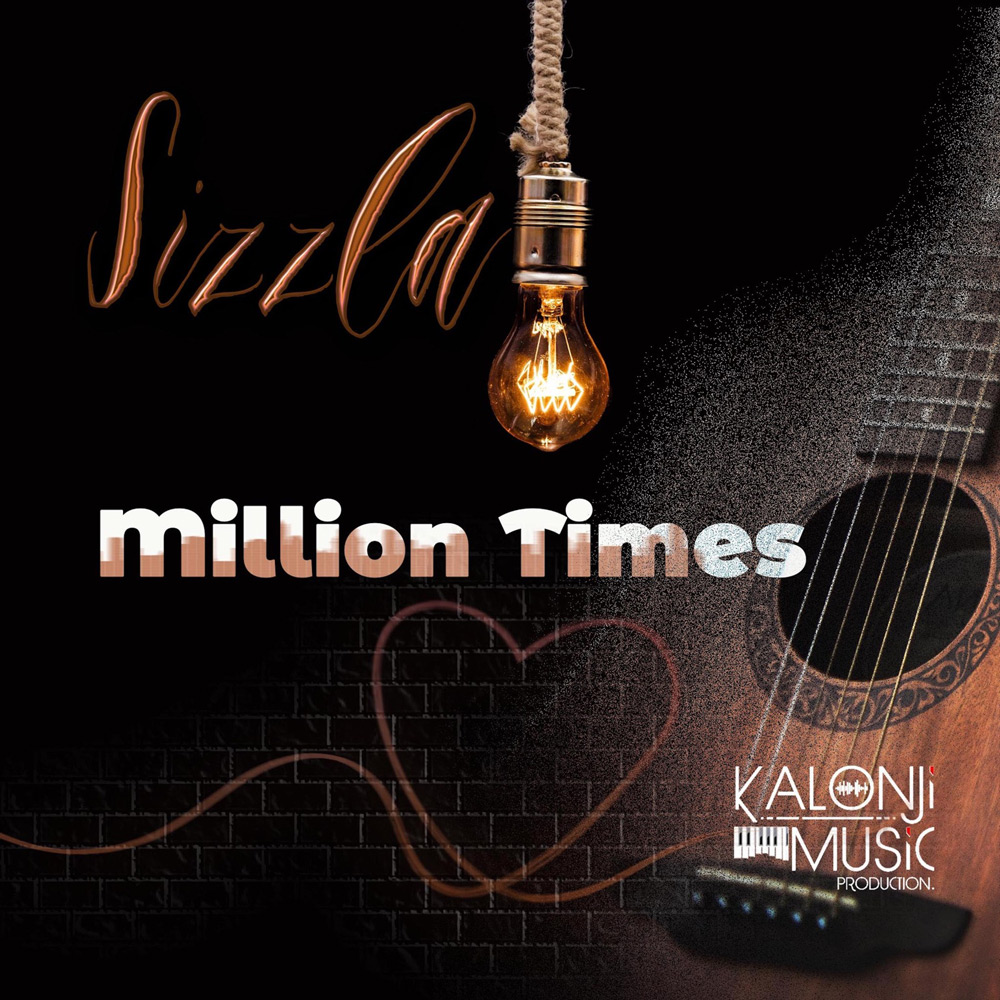
After doing these songs, I choose the songs then the remainder I continue recording and add to them. So, Million Times was mainly for girls. It was mainly a love album. I’ve done a lot of conscious songs, Raggamuffin songs. And the girls have been asking for their songs. But this new one, On A High, based on the pandemic, the crisis, I’m going to give you conscious songs, love songs and a different feel. So, once you listen, you’re never going to stop. This is the one. But I’m already with the third album…
Really? A third album is already done?
Yes. It’s just for me to choose the direction. I like to be proactive, to be ahead of the game. I’m a very busy person. I’m not only an artist, I do a lot of other stuff – I started doing farming on a wide scale; I’m doing a swim class with kids in the community. That’s how I get the album out. Beautiful people giving me spirit. I take the spirit of the nation into the studio with me. And it helps in making the sounds easier to write and be recorded.
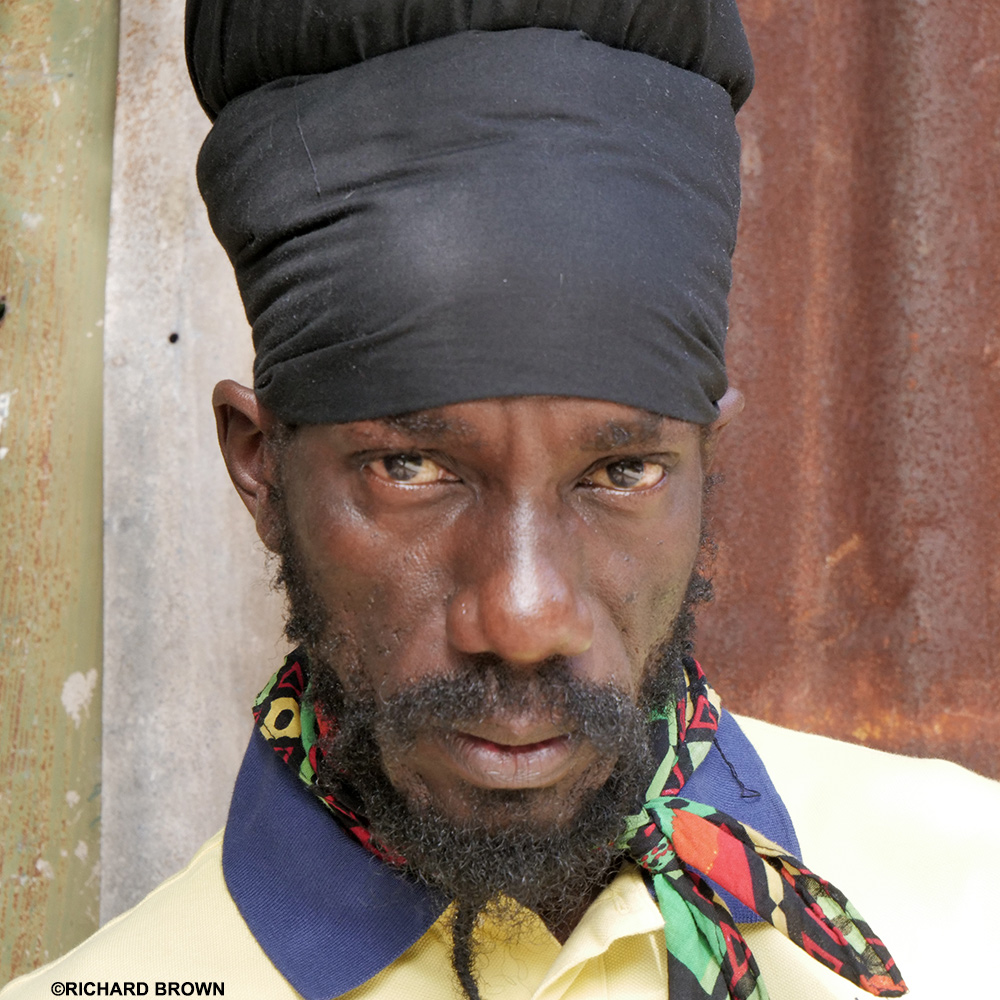
The album covers multiple genres: from Roots, to Ska via AfroDancehall and even Trap. Why did you make it such a modern project?
When you look back at legendary artists like Jacob Miller and Toots [Hibbert], all those great musicians before, they weren’t exposed to this whole library of knowledge we’re getting today based on the internet. They weren’t exposed to social media and all the sophisticated devices in the studio. Pro tools are making music much easier. I just have to capitalise on all that stuff – and I like the people very well. There are no artists without the fans. So, my duty is to reach out to that wide range of people – to spread the love of Rastafari. The same vibration I get when I’m in the US, Europe, Africa, anywhere in the Caribbean – the love I got from those people, I need to extend that love. I need to take that frequency and make songs out of it and reach out to the world – because music is love. A lot of people are going through depression, turmoil – there’s a lot of things they’re facing right now. And my duty is not only to come and point put the problems, but take you away from them. So, I think this album is very beautiful in a time like this, the pandemic, where it can take your mind off the problems of the world for a bit and enjoy some good Sizzla.
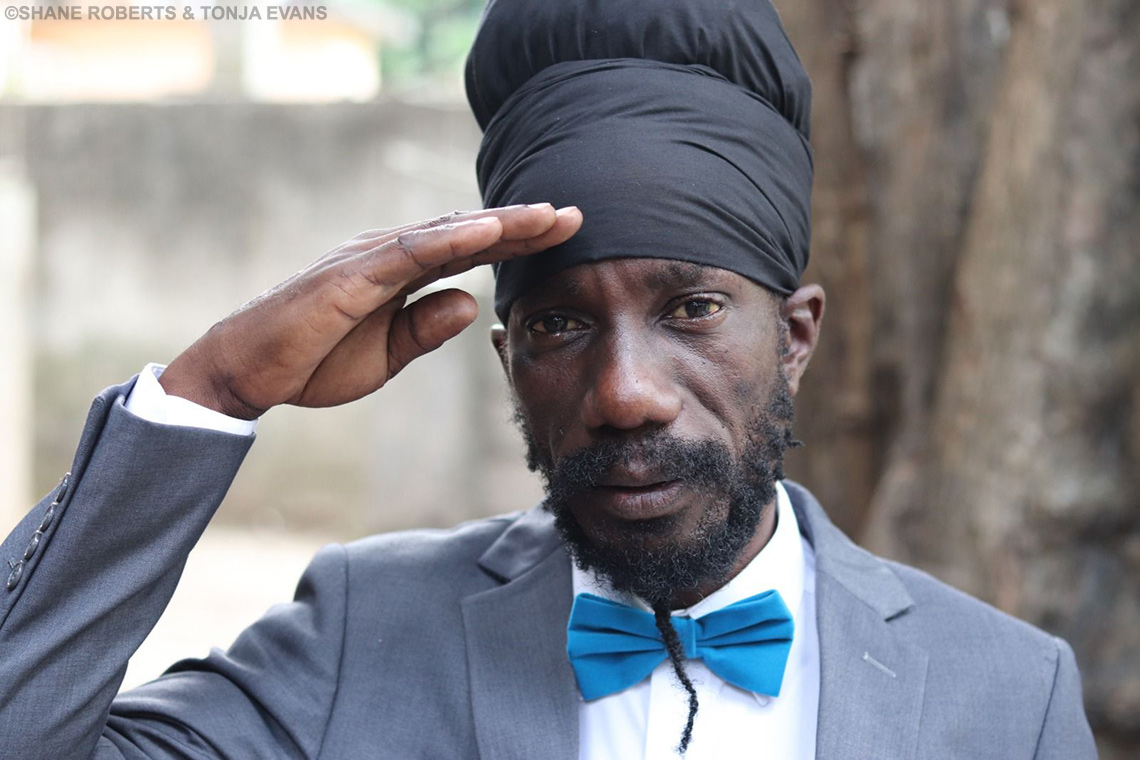
It does that. The album is split into two parts: half is positive vibrations and the other is cautious, almost filled with warnings. Was that a planned construction?
Yes. The reason for that is, In Jamaica it’s part of our culture as artists to be well-rounded. We study: as I say, repetition is the mother of knowledge. And he who hates others, hates himself. So, this is it for me. When I’m on the stage in Jamaica, when you’re at a party where you have a lot of beautiful girls, you’ve gotta come out banging! You’ve gotta come out on top, make sure your name is in all the newspapers. I work for the known and the unknown, the born and the unborn. So, if I’m in a club, doing a show, and you’re in the UK, you don’t know what’s happening. But when you get to see that show it’s like you’re in the venue. Well, that’s how I work.
So, I want to make sure I’m pleasing the fans out there. I want to do songs, love, songs, a retrospective. But I also want to reach out to the wider population based on social commentary – things that happening in their lives, their communities and the country. Be connected to the current situation in their country, with their government and their people. So, I want to make sure I maintain my culture as a Rastaman, y’know? [Sings] “I’m on a high right now! I got wings I would fly right now! Marijuana oh you good…”. So, that’s really something planned.
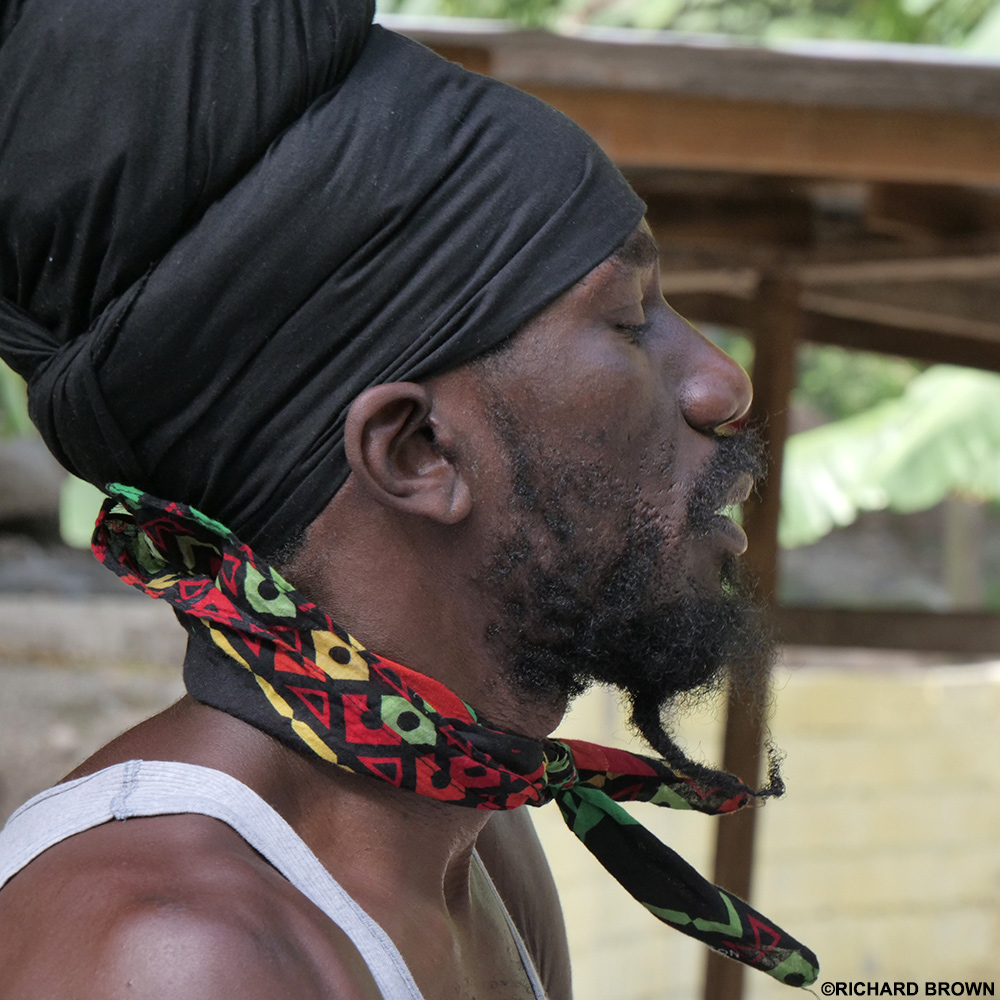
But when it comes to culture and festivals in the Caribbean, including Jamaica, you gotta be conscious, you’ve gotta come out with the Bob Marley character, with the Roots vibration and culture – people are looking for that. So, I make sure I place those songs on the album. You want to go to a party with your wife, there are songs on the album for that also. There are inspirational songs you can play for kids. I like making table songs, too – songs where you can play the songs and the mother, the father, the family, even the prime minister – they can sit at the table and listen to Sizzla. And that’s the kind of album I think I’ve created for the world. That is why you’ve got different genres and different variety of messages.
The album also feels like a response to the pandemic and what’s unfolded. How did that shape your feelings about life and the world in general?
I wouldn’t say it’s changed me. I’d say it heightened my spirit in doing the best I can towards my profession in getting the message to people. We’ve been saying this before, Rastafari been teaching this – it’s in our culture, the Bible. We’ve been looking for this, we’ve been expecting to see this, especially from the Book of Revelations. So yes, it changes a few things. But it’s heightened my spirit and got me more aware and prepared of the future, and knowing we’re not the only persons living on this planet. There are other people making decisions that might affect you, your family, your friends or your loved ones. So, I’m being placed in the position I’m in. A leader, in the sense to direct my thoughts towards the nation for their welfare, their wellbeing, their betterment for the future. If you’re not happy to see other people’s children living in harmony, then you’re not really happy with yourself. What you need for yourself – you should look out for other persons.
So, the pandemic got me more prepared in knowing that I need to be self-sufficient, self sustained, I need to start creating for myself., As Marcus Garvey said: “Build for yourself. Teach for yourself”. You’ve got to learn to create and have in-house habits, positive habits. You’ve got to be customary to stuff around your world. As Jamaican people say, ‘take your hand and make fashion’. So, things you wasted yesterday you can’t waste today because you’re not sure if you’re going to receive anything tomorrow. The whole world is on a lockdown right now.
We’ve got to be wiser, smarter, think right now for ourselves and for our future. We can’t not be looking out for ourselves, even thought it’s a pandemic. That’s what they wanted us to do: to neglect ourselves, our friends and our communities and countries – and go onto something that’s not progressive, that’s not uplifting, not beneficial. It’s a whole chaotic system. But we all know that out of the chaos comes the order. That’s where it places me. And my feelings towards the pandemic are, it’s a new way to get the world in one basket that they can squeeze. So, this is why I made this type of music.
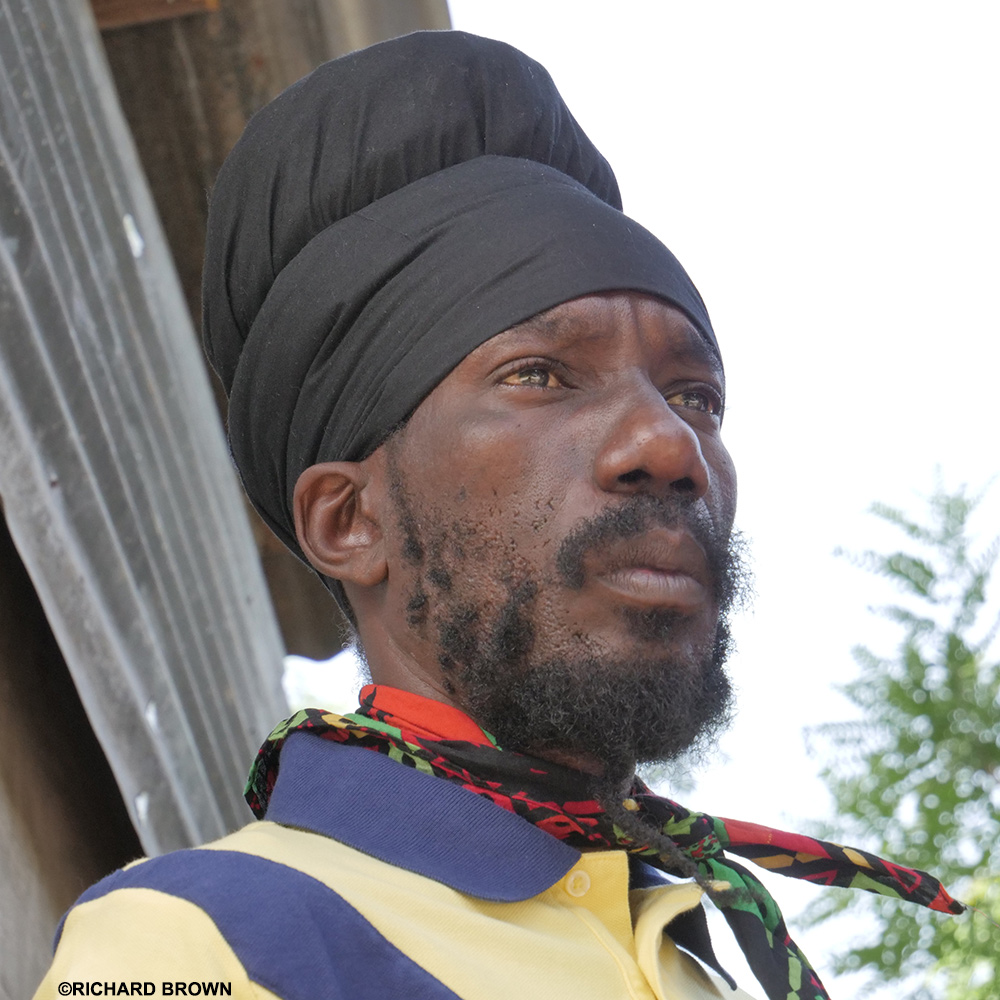
A lot of that comes across in the track Business. I also want to talk about System and Puff. You seemed vulnerable: exasperated by the world on System, and then on Puff which seemed like ‘part two’ discussing how cannabis is a relief from the pressure of the system. Do you feel fed up with it all?
Yes, exactly. The system covers a whole lot of feelings for me. Because the system has explained songs I’ve done way before, and it used to be, like, in good ways, y’know? [Sings] “There’s nothing in the system, of which they’ve created all around”. But now, it’s like [sings] “Can’t get no food, no clothes, no shelter at all; some people ah work but the pay cheque small”. So, with [the song] System it’s what’s happening in and around society, now: people are frustrated, what fell from the head fell on the shoulder. So, this is why we’ve got to go out and do stuff: be united, be conscious, don’t be selfish. And if the system is in this sense pressuring us, luring us to do what we don’t want to do – we need to meditate. Be humble. Say a word of prayer and look in a new direction; chart a new path for the future, for your family and your loved ones. Because we’re all being depressed by the system and we’re all fed-up of the system. It’s why I make songs like these.
I’m in August Town right now. We’ve been pressured by the system. It’s lockdown, no-one can go anywhere. You don’t know when people are in a bad state of their health, because we can’t go nowhere. I’m just seeing that this system is just to kill us off. That’s it. Because it’s not giving us life, it’s not making anything better for us. I’m just seeing death and sickness.
All the messages within On A High come across as humble as opposed to preachy. Is that important to you to connect in a way that people want to listen, as opposed to being forced to?
Yes. Unity is strength. A bundle of matchsticks – they’re unbreakable. I’m singing for the world; I’m reaching out to the people. So, you can’t be like a dictator. You need to listen. He who doesn’t take advice, cannot command or lead. And to lead the world you need a very high sense of discipline within yourself. You’re like a product: people buy into the product. So, you need to keep yourself clean. You’re an artist. While you’re here, people all over the world are thinking about you – but you don’t know what they’re thinking about. So, you, yourself, you’re a walking billboard. You’ve got to keep yourself and lead by example. That’s just the simple way for me. I’m reaching out to the people, and the people have got to be able to reach out to me.
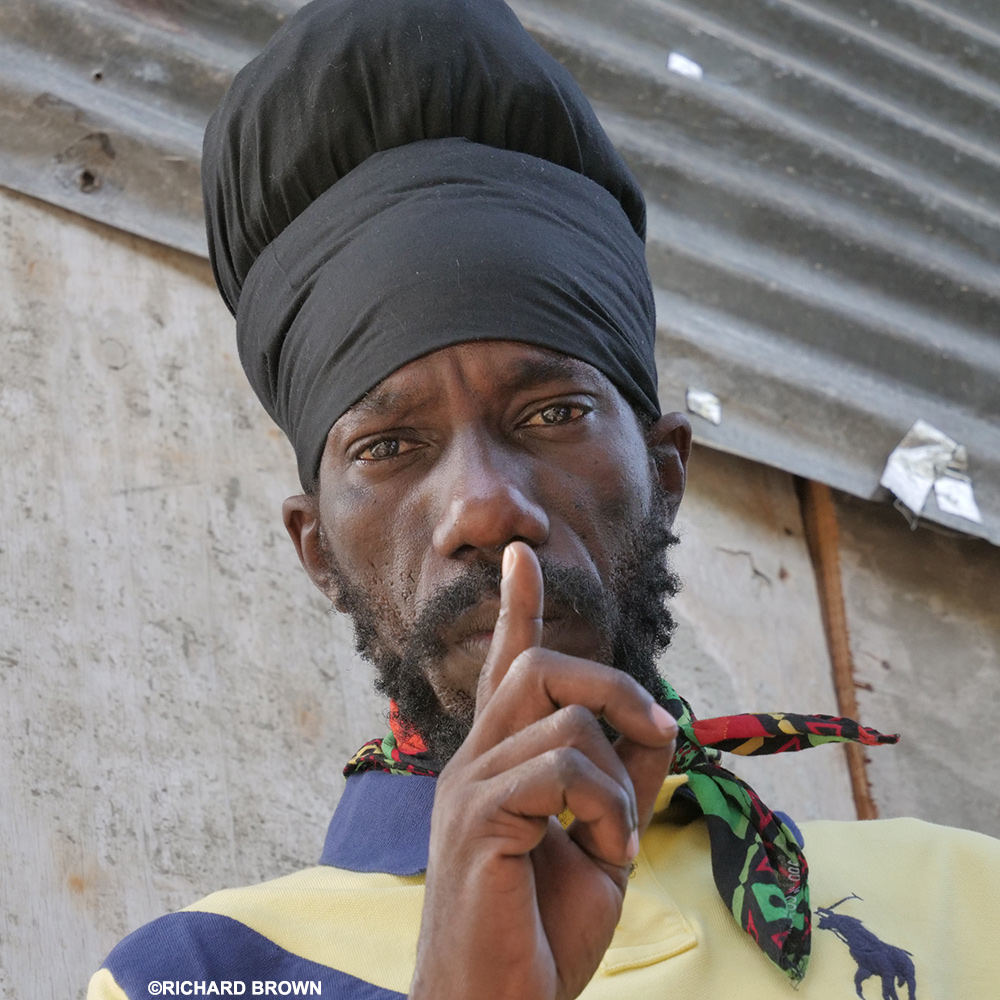
As I once read, a King should know that everyone is entitled to at least three minutes of hearing from him. Because you’re the King for the world, for the people. So why can’t you listen to the people? Repetition is the mother of all knowledge. So, the people keep repeating all these things that are happening to them. This is where we’re at. Listen to the people and you’ll get the knowledge. If you’re on the stage, and you’re singing but not reacting and the people are not reacting to you – then something is wrong. You need to relate to the people and let them relate to you. It’s the same thing in the album. Make songs to relate to the people – not to bully or dictate to the people. You’re not the only person with the knowledge. There’s always someone better than the present person. So, just be humble and you learn a lot.
Making songs for me, is not just Sizzla getting up and wanting to do all the lyrics. No. I’ll ask people: ‘You hear this part of the song? Give me some inspiration’. So, when I reason with people and the more discussions I have with people, it’s better for me to make songs in the absence of the people. I like doing autograph signings, I like doing community service, I like doing press conferences and interviews – because I learn on the job. And you’re not too young or too old to learn. True leadership doesn’t always depend on age. You need to listen to the young and to the old. So, when I make songs like these, I’m reaching out to the public and reasoning with them. It’s like I’m there with them in the car, in the fields, on the plane. I’m a people person and I can’t change.
How are things with the Sizzla Youth Foundation?
It’s doing well. I’ve managed to gain a lot of support. I’ve done a lot of fundraising. Things I did, aid and assist a lot of communities - I did a lot of charitable deeds. Sponsoring kids going back to school, paying school fees – that’s what I like doing. The foundation came about because I’m from the lower part of society, but there’s a lot of beautiful people there. Everyone is important and beautiful. So, I wanted to give back to the people. But when I study the world, study the governments., they’re doing this money laundering. So, I say, people just love Sizzla and they give Sizzla stuff – even if I’m not singing, they’ll still give me things in cash and kind. Therefore, I decided to start a foundation. I don’t want the government to be looking at Sizzla like ‘Hey! Sizzla is doing stuff with that money…!’. I needed it to be done properly. I structured this with the help of other upstanding persons.
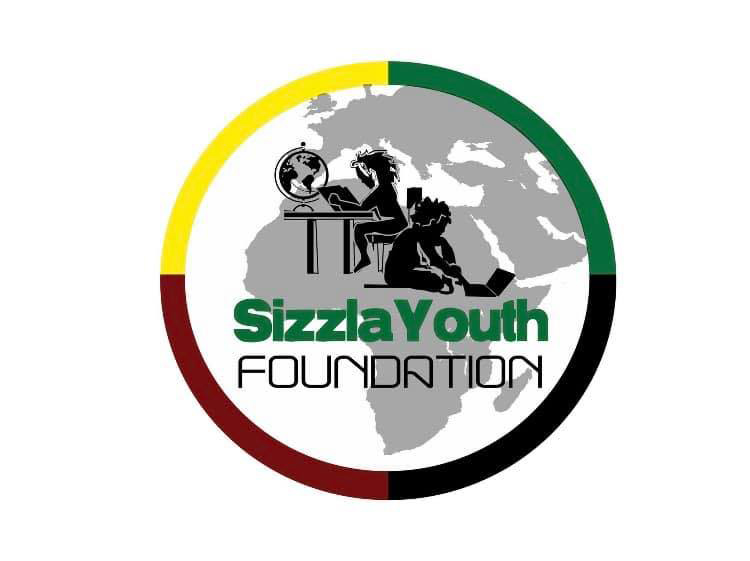
I always wanted to do something charitable, ever since I was a child. My mother used to run a little stall where she’d sell biscuits, and she’d take me to the market to help. And when she wasn’t around, I used to give away all the biscuits – and she’d come and spank me…! Every Sunday, I’d give some of my dad’s food to my friends. So, I like the path the foundation has taken. This is Sizzla giving back to the people. Not only from my hands or pockets but from any respectable concerned person in the world. Anyone can do a foundation. Especially in this time. I feel so sorry I didn’t get a lot more work out than I’ve done already. I’d have done a lot more interviews, a lot more shows, a lot more travelling. Because you see what’s happening in the world – I can’t travel right now and I need to see the people. The people are suffering. So, we need to reach to the people. If we can’t go physically, we go iritically [spiritually] as Rastaman. Reach out to the people with the spiritual arms of the Most High. That is through words, sounds and power.
You are physically doing something, because you’re building a museum in August Town. Tell me about that.
Well, my community is a very active community – August Town community. A lot of the time the officers [police] are in a bit of problem with some of the children in the community - because they like stunting, they like parties, they like the music. And y’know, sometimes violence is in the midst of all that stuff. So, you know you’re going to see the cops there. But my community, in spite of all this, is just vibrations anyway. They’re a very active community, in every sense: it’s really full every morning, with buses, cars, taxis, people going to work. When I stand at Judgement Yard and look out, I’m like damn. Every morning the community’s being emptied, and in the night, it’s being filled. So, we’ve got to do a lot of work. There’s no venue for the kids. There’s nothing for the community where people can go and have that recreation and natural lifestyle. It takes a community to grow a child, that’s what I’m trying to keep and maintain in my community. Once I’ve started my community, the neighbouring ones and the world will follow. Which they’re already doing. So, I’m building this structure where I can administrate from. Persons coming to Jamaica are going to the Bob Marley Museum – yet Papa’s not here. His museum’s there but people are still going there looking for him. So, we’re going to build a museum also.
We started, but based on the Covid-19 situation, the money situation – so far, we’ve managed to pave the ground, dig up pools – seven pools – we’ve maintained the watercress in the valley. We’ve got a multipurpose court – football, basketball, netball. It’s very beautiful. In due time, we’ll get more money, more charitable stuff, more love and joy to complete it. But the foundation is being laid and we’re working on it right now. It’s there. It’s beautiful.
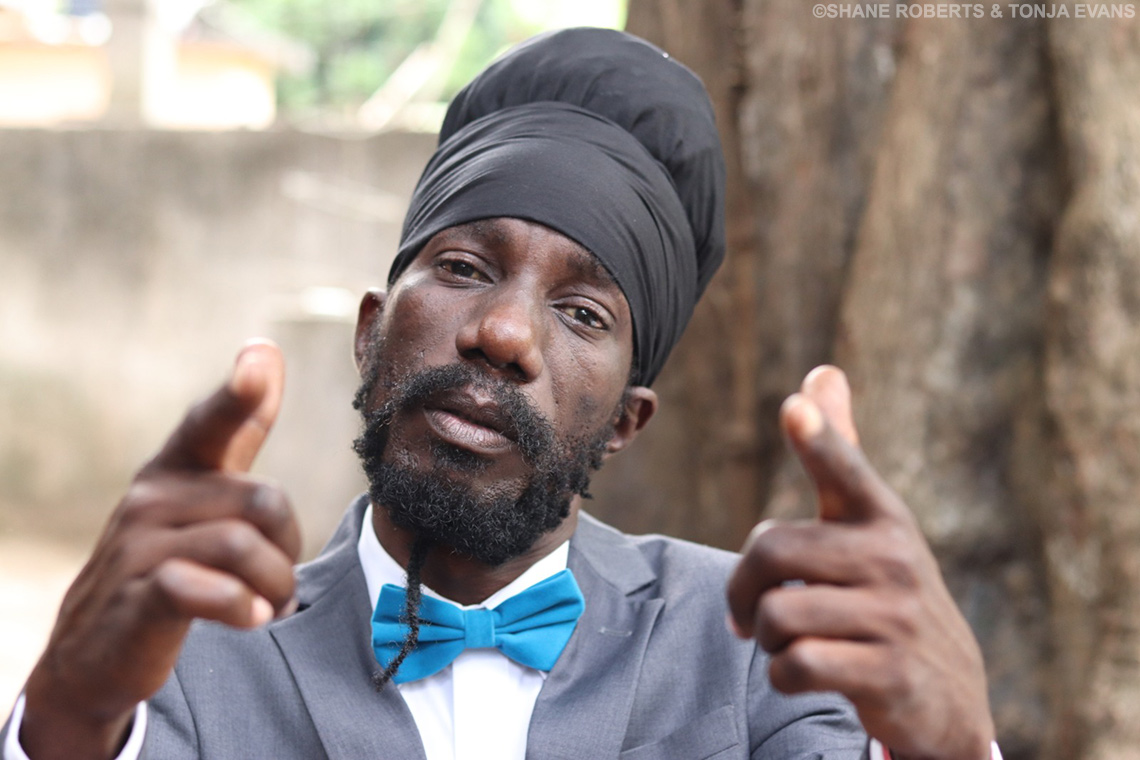
This 129th birthday for His Majesty, is where we’ve started the birthday celebrations for the August Town community. I’ve adjusted it to 23 July to September. Because if we’re doing August Town emancipation, and all nations need to be emancipated out of the colonial system, and we’re going to say consciousness and Black consciousness and reach out to the public, saying ‘here is His Majesty’ – why are we going to be saying that Black consciousness and the King’s birthday is before that? So, I respectfully asked the authorities if we could change the August Town birthday to the King’s birthday, 23rd July, to September – and there wasn’t any problem.
The foundation is doing well. I’m about to do some video shoots, this album is coming out, we’ve got the August Town birthday festival. So, we’re here. This is my life. I’m used to singing for the people in the world. But there’s times when I’m not with any visa. So, I turn August Town into my US; my Canada; my England; my New York – so if I can’t get to England, I’m going to turn Judgement Yard into my London! There’s a whole lot of things to do in the community. It’s a reservoir of knowledge, just waiting to explode. This is it. I work best for my community. Yeah, I like that! I work best for my community.
Well, I’d come and live in your London as opposed to my one!
[Laughs] Any time…!
That’s a great way to wrap this up. On A High is superb, so we hope people listen to what you’re saying on it – regardless of awards and sales. Sizzla – thank you so much for speaking to Reggaeville.
Thank you very much for having me. Reggaeville, London – salute!




